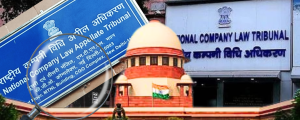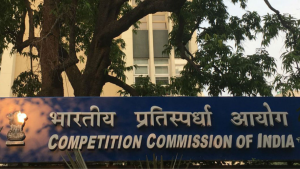

A Refreshing Approach to Tackling Repeated Adjournments
Justice Gautam Patel’s order dated 27 February 2018 in Ram Nagar Trust No. 1 v. Mehtab Sheikh imposing a cost of Rs. 1000 for each of the 450 days of delay in filing an affidavit, by the plaintiff, is an extremely important one in the context of the enormous delay that characterizes our judicial system.
The case is an original suit filed in 2009 in the Bombay High Court. After issues were framed on 26 September 2016, the plaintiffs were to file a list of witnesses, evidence affidavit, and compilation, first, by 24 October 2016 and then by 5 November 2016. However, nothing was filed until 27 February 2018 when the matter was listed, wherein the plaintiffs sought one more week to make their filings. Justice Patel refused to grant time and imposed costs. The order is refreshing as it reveals that the learned judge has not only understood the reasons behind the problem of delay, but is determined to address it in a manner that restores respect for the judiciary and the rule of law. Despite the provisions of Order XVII of the Civil Procedure Code, adjournments are granted as a matter of course in all courts across the country. If, and when, a counsel opposes an adjournment, a nominal cost is imposed on the party seeking the adjournment. Such nominal costs have no deterrence on lawyers and parties seeking further adjournments. The lack of a deterrence effect is even more concerning when a plaintiff who goes through the process of initiating legal action, fails to ensure that adequate steps are taken for the resolution of the dispute with the same enthusiasm. Further the ease with which adjournments are given means that there is no certainty of action in any hearing in most courts on most days. Unless the judiciary takes steps to address this uncertainty, we cannot hope for timely (not speedy) justice. Only when each hearing is effective, can a case be resolved by the court within a time frame. If a 2009 case cannot be taken seriously in 2018, we may as well say goodbye to our search for justice.
Justice Patel’s order is therefore welcome, and one hopes that his brethren follow his lead. Other participants in the system, including lawyers, should understand and support Justice Patel’s reasoning. I am sure there will be objections raised to Justice Patel’s order on the ground that the cost is excessive and that we should not hurry justice. In DAKSH’s 2016 Access to Justice survey, we had found that the average cost incurred by a litigant for each hearing before the subordinate courts in the country was Rs. 1,039. If that is taken as the benchmark, Justice Patel’s reasoning is spot on. After all, there is a more serious cost to the case continuing in the system. An undisposed case not only affects the parties involved, but also the ability of the system to resolve other cases. No civilised country should take 9 years to resolve a case in the first instance!
The views expressed in this article are solely those of the author’s and they do not represent the views of DAKSH.

Harish Narasappa
RECENT ARTICLES


Testing the Waters: Pre-Implementation Evaluation of the 2024 CCI Combination Regulations

Not Quite Rocket Science

Administration of justice needs an Aspirational Gatishakti

-
Rule of Law ProjectRule of Law Project
-
Access to Justice SurveyAccess to Justice Survey
-
BlogBlog
-
Contact UsContact Us
-
Statistics and ReportsStatistics and Reports
© 2021 DAKSH India. All rights reserved
Powered by Oy Media Solutions
Designed by GGWP Design